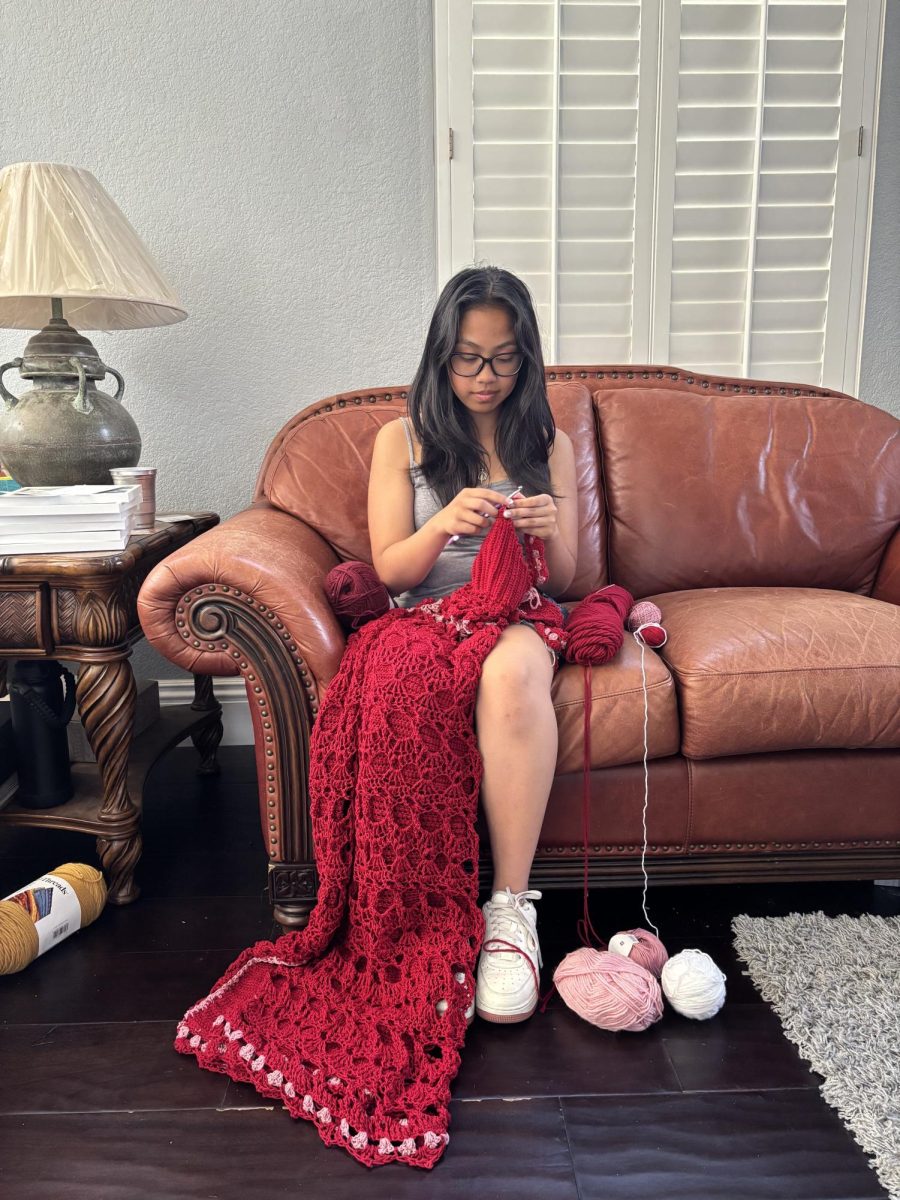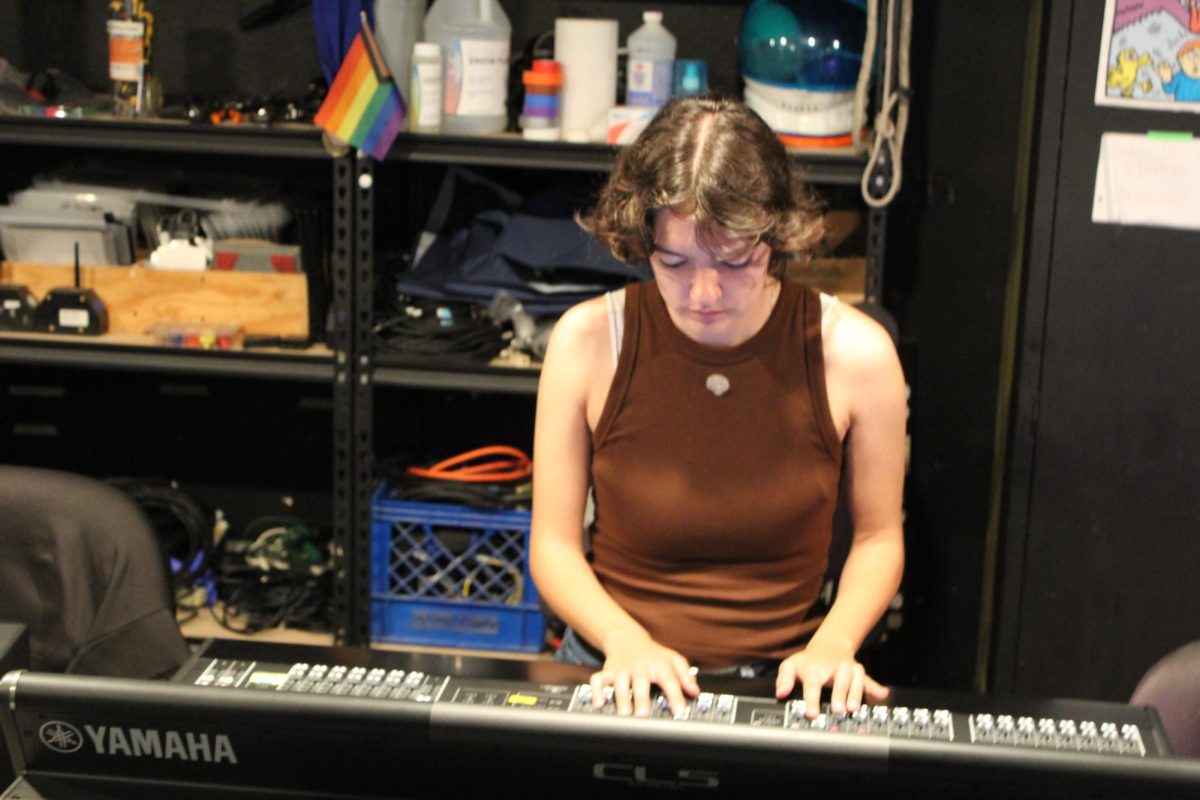

Gratitude: the concept itself seems as elusive as “happiness” or “love.” It also can have the same cheesy connotation, like something seen on a poster at Michael’s or what your kindergarten teacher encouraged you to feel.
However, clinical psychologist Dr. Colleen Kennedy said that there are numerous tangible ways to practice gratitude, which include starting a gratitude journal, writing about a time you were particularly thankful, or writing a letter of thanks to someone who has made a difference in your life.
Even though these seem like simple actions that would make a minimal impact on someone’s life and mood, Kennedy said practicing gratitude on a regular basis helps make a positive mindset more automatic, and overall boosts mood and leads to a happier life.
Thus, in order to see whether high schoolers would be able to feel the positive effects of being grateful on a daily basis, even within the confines of their busy schedules and the stress that comes with high school, Amanda Foster (11) and Nataliana Hernandez (11) were asked to use a gratitude journal every day for a certain period of time and to take the time to write about people or past events that they were particularly grateful for.
Foster hoped that using a gratitude journal would help her appreciate the small things in her life more and positively affect her daily mood. Hernandez hoped that journaling would help her de-stress, be more appreciative, and help put her problems into perspective, so that she could change her overall attitude towards negative experiences.
Kennedy identified a busy schedule as one of the biggest obstacles that high-school students face when trying to practice gratitude and make their mental health a priority.
“Many high-school students feel stress and anxiety as they prepare for their futures, and learning to reduce those negative feelings is really important to maintain good mental health,” Kennedy said. “Setting aside five minutes per day to reflect on the things you are grateful for is one easy way to do that. For example, you could fit gratitude into your day when you first wake up in the morning, right before you go to bed, or during your ride to school.”
Although Foster said she was already a fairly happy person, this only happened recently when she made having a positive mindset a priority.
“In the past I haven’t always been as positive as I would hope to be, but this year and last year especially, I’ve made an effort to take time to think about the good things in my life,” Foster said. “Taking walks and thinking about what I am grateful for, saying thank you more often, and trying to put others first have had a very positive impact on my outlook on life in general.”
Overall, Hernandez also said that she’s a happy person, but many situations cause her to be stressed, anxious and worried.
“School plays a large part in achieving my happiness, because I put a lot of pressure on myself to do well and the assignments can overwhelm me, so I become worn out and I find myself having little to no time to myself to relax or do things I enjoy,” Hernandez said. “When I journaled, I would try to remind myself to be more positive and look at the good things if I was feeling down. Although I’m not at the level of happiness I would like to be at, I definitely feel like I’ve improved my outlook on life.”
Foster used her journal to deal with a different struggle on her journey toward becoming a more grateful person, as she worked on dealing with negative comparisons.
“Writing about what I was thankful for made me compare myself to my peers in a more positive way, because even though I could be more or less fortunate than them, regardless, I have a lot to be grateful for,” Foster said.
Foster said she believes that she was able to combat these feelings by focusing more on the things going right in her life, rather than the things that she was lacking, which using the gratitude journal also helped her accomplish.
“In the past, I’ve always found it difficult to not always be striving to improve my appearance or improve my academic abilities, but recently I’ve learned to evaluate the things in my life and what’s really important to me,” Foster said. “By realizing what I care about, it’s much easier to work hard at the things I love to do, like art and theatre, and prioritize what I want to spend time on.”
Similarly, Hernandez said she felt like being grateful has helped her put her difficult experiences into perspective, which has then enabled her to overcome any setbacks she encountered.

“It makes me happier realizing that I have supportive people around me and I’m putting in my best efforts, which are pushing me towards my goals,” Hernandez said.
Kennedy said she thinks that many high-school students try to compare themselves with others in order to boost their sense of self, but she advises high schoolers to more positively compare themselves to past versions of themselves.
“Think about where you are today versus a year ago and focus on being the best you can be,” Kennedy said. “As you focus on self-improvement, being grateful for yourself, what you have, and things in your life that are meaningful to you, can lead to feeling happy.”
However, Foster also said she realized that she felt guilty after meeting many people in her volunteer work who are facing less fortunate circumstances.
“I think that volunteering at such a young age made me a lot more grateful for what I have and what I can do, but it also made me feel a little guilty about how lucky I am to live in such a great area, to go to such a good school, and to have such amazing parents and friends,” Foster said. “Feeling guilty can make it hard to feel grateful.”
Before starting her gratitude journal, Foster said that she hoped she would make gratitude a habit and be able to appreciate the little things in her life more.
When writing in her gratitude journal, she followed the guidelines that Kennedy outlined.
“Be specific when thinking about gratitude,” Kennedy said. “Instead of thinking, ‘I’m grateful for my family,’ think of a specific moment with a family member that made you feel grateful. Be grateful for both the big and the small things in your life, such as the opportunity to go to college, your parents who brought you into this world, the person at Starbucks who always remembers what you like to order, et cetera.”
By journaling, Hernandez realized one of the biggest things she was grateful for was how much her parents sacrificed so she could go to Westview and live in California.
“When I first started school at Westview, it was hard adjusting and making new friends,” Hernandez said. “I didn’t think about how much my parents did to make sure I was where my relatives live, such as my mom having to turn down internships, scholarships, volunteering opportunities, and a masters program to further her graduate education and my dad sacrificing a job promotion, because my parents wanted to support me and give me a good education and more opportunities.”
Before trying a gratitude journal, Foster would rank her happiness as a 4 out of 5, but afterwards, she said that her happiness increased to a 5 out of 5.
Foster said that this journal helped her more fully appreciate the people in her life.
“With my parents, I have tried to say thank you more often, and I think that it helped improve my relationships with people and let me look at things in a more positive light,” Foster said. “In the future, I hope to continue this by starting off each morning by writing one thing I am grateful for or looking forward to.”
Foster found that her journal helped her think about gratitude in a more creative way.
“I had to think of different things I am grateful for every night to avoid being repetitive, which made me realize that there was a lot I might take for granted every day,” Foster said. “I think that these things can go unnoticed if we don’t stop to appreciate them.”
Before gratitude journaling, Hernandez would rank her happiness as a 3 out of 5, but afterwards, she said that her happiness increased to a 3.5 out of 5. In particular, she said that it helped her appreciate more of the positives in life.
“The reason it only went up to 3.5 is because the journal made me look at my school life and personal life from a different perspective,” Hernandez said. “However, even without doing the journal, I’ll still make it my priority to always take time to appreciate the good things in my life. Even with finals week being super stressful, I felt that thinking about what I’m grateful for made it less stressful because I had a lot more to look forward to than only the negatives.”



